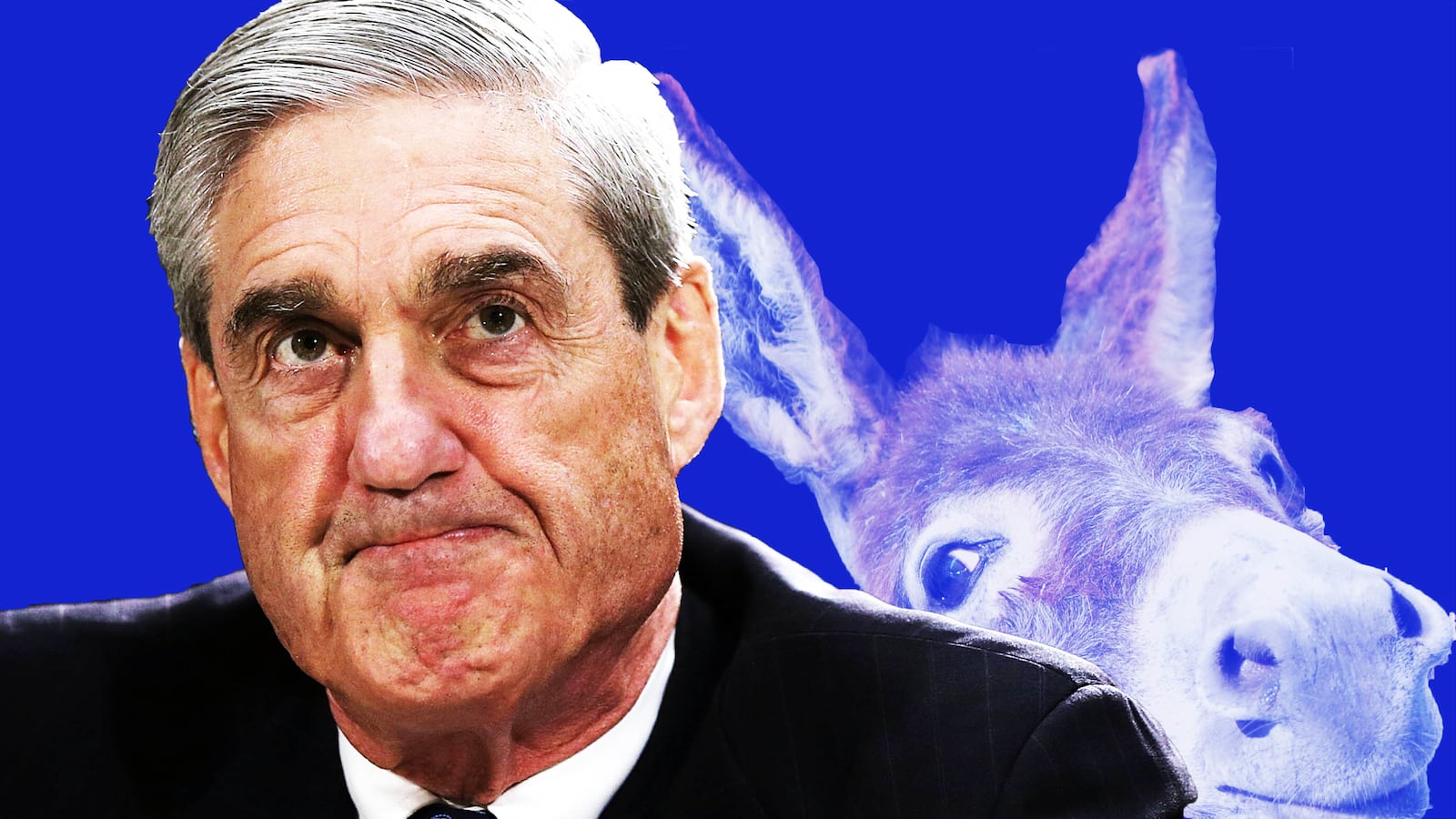Welcome to Rabbit Hole, a breaking news analysis that helps you get smart on the one story everyone’s obsessing over—for Beast Inside members only.
House Judiciary Chairman Jerry Nadler wants to know everything Special Counsel Robert Mueller knows, so he sent basically everyone in Trump’s orbit a letter telling them to cough up what they’ve given federal prosecutors. Welcome to the Congressional version of the special counsel’s investigation, where the witnesses are more public and presumably their evidence will be as well. But can subpoena power help House Democrats dig up or at least make public something that other investigations haven’t already found?
Cut and paste: With 81 recipients of production requests on multiple topics announced today and more on the way, that certainly seems like a lot of investigative work. But look closer and you can see the committee is focused on just a handful of threads. The document requests in the letters are cut and pasted from a handful of lines of inquiry, none of which are news to keen observers of the Russia investigation.
Many of the letters differ in small ways but they follow a few basic templates.
The Russian contacts letter: This is the letter that most recipients received, which asks about the main thrust of the Russia investigation. Recipients are asked to cough up any material on contacts between themselves or the Trump campaign and Russia or WikiLeaks. Specific topics of interest include the infamous June 2016 Trump Tower meeting with Natalia Veselnitskaya, the Trump Organization’s plans for a Moscow Trump Tower, discussions of sanctions or contacts with WikiLeaks. A few recipients have received a variant of the letter that asks them for any information on Paul Manafort and Rick Gates’s foreign contacts and Michael Cohen and Essential Consultants LLC clients.
The obstruction letter: If the Russian contacts letter is about the alleged crime, the obstruction letter is about the alleged cover-up. Recipients of that letter include White House aides like former Chief of Staff Reince Priebus, White House Counsel Don McGahn, and Communications Director Hope Hicks. The committee asked them to produce documents related primarily to the firing of law enforcement officials like James Comey, Jeff Sessions, and Andrew McCabe and the suspected near-firings of Rod Rosenstein and Special Counsel Robert Mueller or talk of pardons for the likes of Flynn, Cohen, and Manafort.
The tabloid dirt letter: A smaller number of witnesses, mostly those connected to tabloid publisher AMI, received a letter asking for any documents about the National Enquirer’s catch-and-kill practices that helped hush up Trump’s alleged affairs with Stormy Daniels and any other Trump scandals the company used to bury Trump scandals.
Spray and pray: That approach may have helped the committee garner headlines and crank out a lot of requests in a short period of time, but what the approach yields in efficiency it lacks in precision.
For example, the committee requested documents from former Trump campaign manager Corey Lewandowski about the White House counsel’s office communications with Trump over the firing of Michael Flynn. It’s hard to figure out why even a Trump crony like Lewandowski, who was fired from the Trump campaign in June 2016 and hasn’t worked in government since then, would have access to such high-level, sensitive discussions. Nor is it obvious that Cambridge Analytica or its staff ever met Michael Cohen, much less would have knowledge of his consulting contracts after the 2016 election.
That kind of template approach also begs the question of whether the committee is missing out on requesting critical, specific documents by putting out such broad asks.
Reruns: Each letter instructs recipients that they should deliver documents they’ve already given to Mueller’s team, federal prosecutors in New York, and others on an “expedited basis.” In other words, the first documents that the House Judiciary committee sees are going to be the documents that have already been turned over to federal prosecutors.
“I think this is a smart strategy because it will be hard for subpoena recipients to claim some kind of privilege if the materials have already been turned over to Mueller or SDNY without objection,” Mimi Rocah, a former assistant US attorney in the Southern District of New York, told The Daily Beast.
Caveats: But there are limits to what legislators can get their hands on by congressional subpoenas alone and Rep. Nadler can’t backdoor his way into everything Mueller has with a few dozen letters. Witnesses like former White House Counsel Don McGahn can use executive privilege arguments to slow down, if not shut down, certain requests about the advice he gave President Trump. The president has the ultimate authority to dictate what’s classified and what gets declassified, which may affect what the FBI can share with the committee about possible outreach from the Russian government to the Trump campaign.
And there’s also plain old attrition tactics. “Any fight, even on dubious legal grounds, could as a practical matter take up more time,” former US Attorney and Deputy Attorney General Harry Litman told The Daily Beast. With 81 witnesses (so far) and two years until another election could sweep Democrats out of power, there’s plenty of opportunity to run out the clock.
Why? So what’s the point in retreading ground already ploughed by investigators from the Special Counsel’s Office, the Southern District of New York, and others? The answer largely depends on your partisan orientation.
Republicans will likely see this as an exercise in trying to keep the Trump-Russia story in the headlines for another two years just as there are reports that Mueller and his team are winding down their own investigation. To hear Democrats like Nadler tell it, they’re just making up for lost time. Nadler told ABC on Sunday that the GOP “spent two years shielding the president from any proper accountability” rather than doing a proper investigation.






